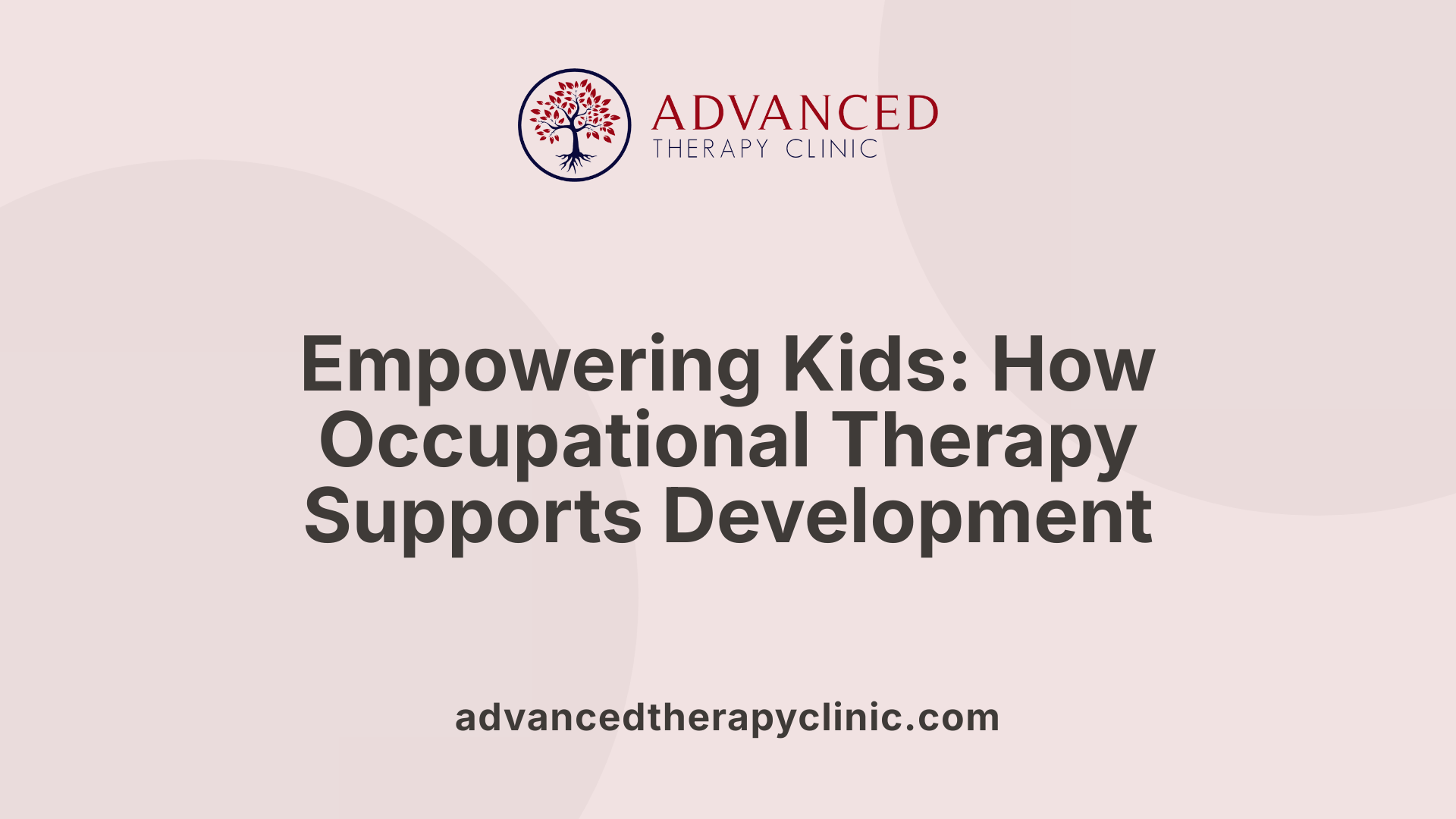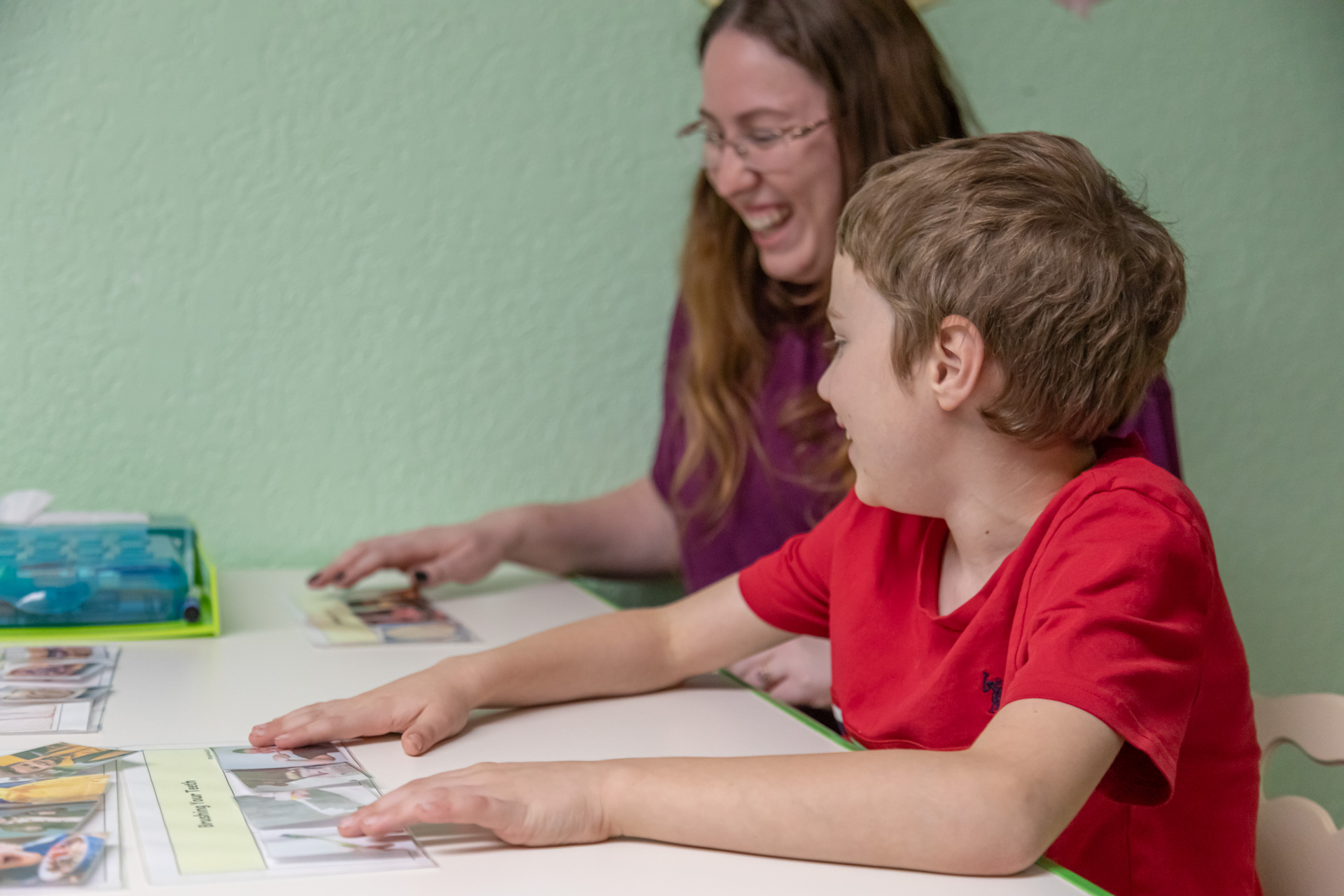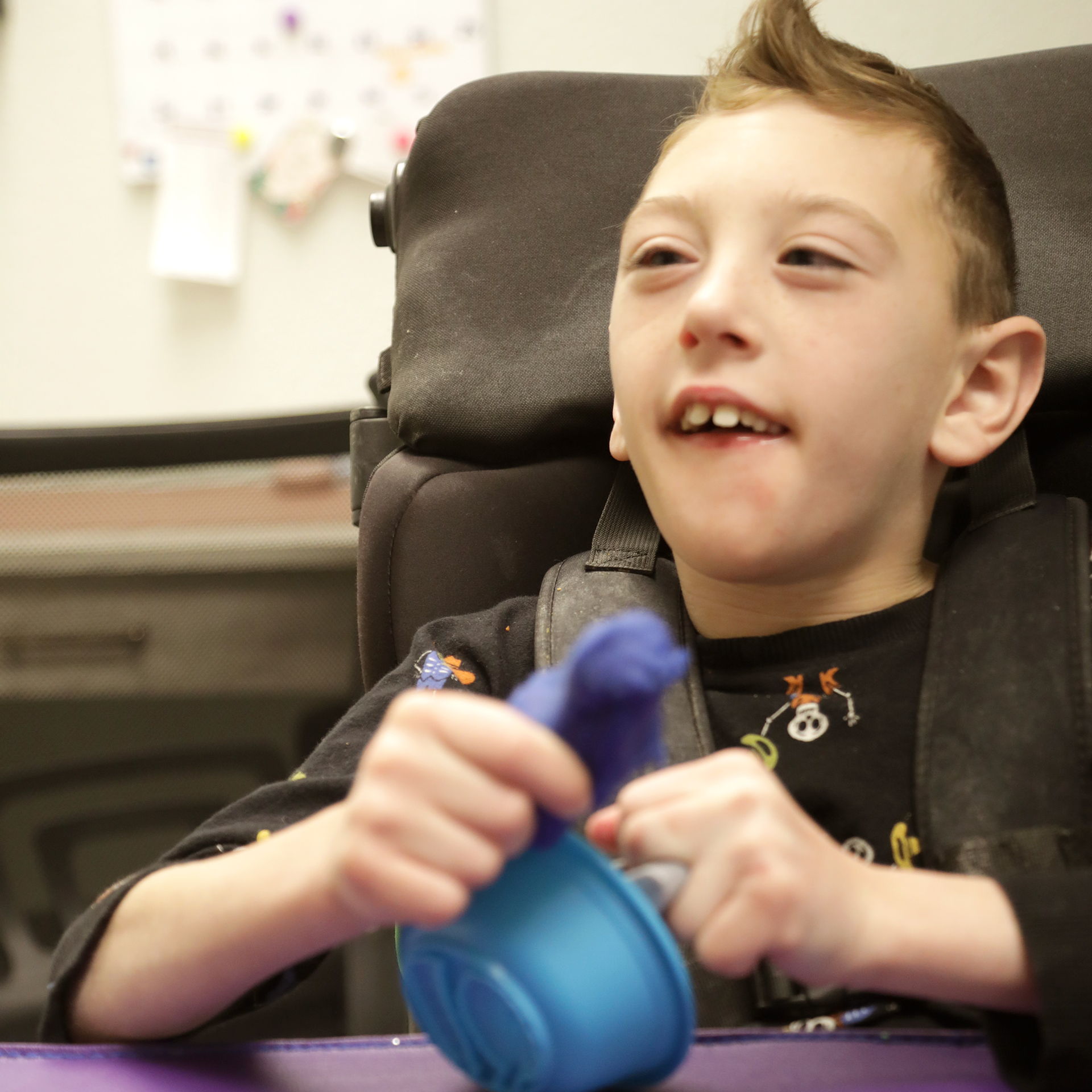The Importance of Early Intervention in Occupational Therapy


Early Intervention: A Critical Pathway to Child Development
Early intervention in occupational therapy is a vital component of supporting children with developmental delays or disabilities. Capitalizing on the brain's heightened plasticity during early childhood, these services aim to enhance cognitive, motor, social, and emotional skills, creating a foundation for lifelong success. This article explores the principles, strategies, and profound impact of early occupational therapy, emphasizing its essential role in fostering optimal development during the crucial early years.
Principles and Goals of Early Intervention Programs

What are the main principles and goals of early intervention programs in occupational therapy?
Early intervention programs in occupational therapy are built on guiding principles that focus on supporting the early development of infants and toddlers who experience delays or disabilities. A central aim is to promote the child's ability to participate meaningfully in daily routines, including activities like play, self-care, and social interactions.
These programs prioritize family-centered services, which means actively involving caregivers in therapy planning and implementation. This approach recognizes the vital role families play in a child's development and ensures that interventions are tailored to family routines, values, and resources.
A key goal of early intervention is early identification and prevention. By recognizing developmental concerns as early as possible, therapists can implement strategies that mitigate potential challenges and foster positive developmental trajectories. This early action is crucial because the first few years of life represent a period of rapid brain growth and plasticity, making it an ideal window for meaningful support.
Additionally, these programs adhere to evidence-based practices, ensuring that interventions are grounded in current scientific research. This approach enhances the likelihood of effective outcomes and supports continuous improvement of therapy methods.
In summary, early intervention per occupational therapy aims to support holistic child development by maximizing their functional abilities, fostering independence, and strengthening family capacity. The collaborative, developmental, and family-oriented ethos underpins all efforts, encouraging children to reach their full potential in a supportive environment.
Supporting Children with Developmental Challenges through Occupational Therapy

How does occupational therapy support children with developmental delays or disabilities?
Occupational therapy (OT) plays a vital role in helping children with developmental delays or disabilities develop the skills essential for everyday life. These skills include self-care routines such as dressing, feeding, and personal hygiene, as well as motor coordination, sensory processing, and social participation.
In early intervention programs, like those coordinated through the Trudeau Center, occupational therapists develop personalized plans tailored to each child's unique needs. These plans focus on addressing challenges in physical, cognitive, communication, social-emotional, and adaptive development.
Therapists often use play-based activities and sensory-rich experiences in familiar environments—like home or community settings—to encourage learning and growth. Active involvement with families is a cornerstone of OT; caregivers are coached on strategies to support their child's progress outside of therapy sessions.
The family-centered approach emphasizes respecting family routines, cultural values, and resources, ensuring that intervention seamlessly integrates into daily life. This empowering model enhances the child's functional abilities and promotes independence, enabling children to participate fully in routines, play, and community life.
By targeting developmental domains through engaging, practical activities, occupational therapy fosters skills that improve the child's ability to explore, interact, and adapt, ultimately supporting their journey toward greater independence and community participation.
In summary, occupational therapy helps children build foundational skills, supports families through coaching, and leverages natural environments to achieve meaningful developmental outcomes.
Strategies and Methodologies in Early Occupational Therapy

What strategies and methodologies are used in early occupational therapy interventions?
Early occupational therapy (OT) for young children centers on helping them develop essential daily life skills and participate fully in their routines and activities. To achieve this, therapists employ a variety of strategies rooted in family-centered, natural environment-based, and culturally sensitive practices.
One fundamental approach involves thorough evaluations to understand each child's unique needs. Based on these assessments, an individualized family service plan (IFSP) is created, outlining specific goals and intervention strategies tailored to the child's developmental profile.
Therapists focus on promoting participation in meaningful activities such as play, self-care, and social interactions. They use targeted techniques like activity analysis, which breaks down complex tasks into manageable steps to facilitate learning.
To support development, interventions often include environmental modifications—adjusting the child's surroundings to reduce barriers and encourage independence. The use of adaptive equipment and assistive technology also plays a significant role, helping children engage more easily with daily tasks.
Play is a central modality in early OT, serving both as an evaluative tool and a therapeutic activity. Through play, children naturally develop motor, sensory, cognitive, and social skills.
Family involvement is essential. Therapists guide and train caregivers to incorporate strategies into daily routines, ensuring that interventions are consistent and embedded in the child's natural environment. This partnership empowers families to support their child's progress effectively.
Interdisciplinary teamwork underpins these methodologies. OT practitioners collaborate with speech therapists, physical therapists, educators, and families to provide holistic support.
Overall, early occupational therapy uses a blend of personalized, engaging, and environmentally integrated methods. These strategies aim to support children’s development while respecting their families' cultures and resources, ultimately fostering independence and participation across all areas of life.
Developmental Milestones and Indicators for Early Intervention

What are the developmental milestones indicating the need for early intervention?
Developmental milestones are benchmarks that children typically reach by certain ages across various areas such as motor skills, language, cognition, social interaction, and self-care. These milestones serve as important indicators of typical development and help caregivers and professionals identify early signs of delays.
In motor development, milestones include rolling over by around 4-6 months, sitting unsupported by 6-8 months, crawling by 8-10 months, and walking independently typically by 12-15 months.
Cognitive milestones involve recognizing objects and people by 6 months, exploring surroundings actively, and solving simple problems such as fitting shapes by age 2.
Language development milestones include babbling by 4-6 months, saying first words around 12 months, and combining words by age 2.
Social milestones involve smiling at familiar faces by 2 months, showing interest in peers, and engaging in shared play by age 2.
Self-care milestones such as feeding oneself with fingers, drinking from a cup, and beginning to dress or undress occur between ages 18-36 months.
Signs indicating the need for early intervention include delays in these key milestones. Examples are not sitting without support by 12 months, not walking by 18 months, limited or no speech by age 2, and difficulties engaging socially or with peers.
Other red flags include challenges with self-care routines, poor response to social interactions, or behavioral issues like withdrawal or aggression. Cognitive delays, such as trouble with problem-solving or understanding instructions, are also important.
Monitoring children's progress regularly through screening tools and checklists helps parents and healthcare providers quickly identify concerns.
Early detection is crucial because the first three years are a sensitive period of rapid brain development. Prompt intervention can support children in catching up with their peers, fostering better long-term developmental outcomes. By addressing these signs early, therapists and families can implement strategies that promote independence, learning, and social engagement, setting a strong foundation for future success.
The Critical Role of Early Diagnosis and Family Engagement

Why is early diagnosis and screening important for children's development?
Early diagnosis and screening are essential processes that enable healthcare professionals and families to identify developmental delays or concerns at the earliest possible stage. During the first few years of life, a child's brain exhibits remarkable plasticity—meaning it is highly adaptable and responsive to interventions. Detecting issues early provides a window of opportunity to implement targeted therapies and support systems that can significantly enhance a child’s cognitive, social, and emotional growth.
Screening tools such as the Ages and Stages Questionnaires (ASQ), the Hammersmith Infant Neurological Examination (HINE), and the Strengths and Difficulties Questionnaire (SDQ) help monitor developmental milestones across areas like communication, motor skills, and social participation. These assessments are usually simple, quick, and can be performed during routine check-ups, ensuring that potential problems are caught early.
The benefits of early diagnosis extend beyond immediate developmental support. They also influence long-term outcomes by reducing the chances of complex disabilities and the need for intensive special education later. Early intervention programs, tailored to each child's unique needs, have been shown to improve a child's ability to learn, communicate, and engage fully in everyday activities.
Furthermore, early screening fosters proactive family involvement. When parents are aware of their child's development status early on, they can better understand how to support their child's growth and advocate for appropriate services. It highlights the importance of regular developmental surveillance, parent education, and ongoing follow-up.
By prioritizing early detection, communities and healthcare systems can help children reach developmental milestones more consistently, ultimately supporting healthier, more independent, and thriving individuals—creating a strong foundation for future success.
Fostering Lifelong Success Through Early Engagement
In conclusion, early intervention in occupational therapy is a powerful tool for shaping a child's developmental trajectory. By leveraging the principles of family-centered, holistic, and evidence-based practices, therapists can address delays early, promote independence, and support meaningful participation in daily life. The collective efforts of healthcare providers, families, and communities ensure that children reach their full potential, paving the way for healthier, more successful futures. The commitment to early diagnosis, comprehensive assessment, and tailored intervention remains fundamental to fostering lifelong success and well-being in every child.
References
- [PDF] What is the Role of Occupational Therapy in Early Intervention?
- Early Intervention Occupational Therapy Guide - OT Potential
- [PDF] Role of Occupational Therapy With Infants, Toddlers, and Families in ...
- The Importance of Early Intervention for Developmental Disabilities
- Early Intervention: The Benefits of Starting Therapy Early - Able Kids
- [PDF] Occupational therapy in early intervention: a family-centered ...
- Roles and functions of occupational therapy in early childhood ...
- Early Intervention Activities for Occupational Therapy (OT) - Coral Care
- The Importance of Early Intervention in Therapy - The Bista Center
- Occupational Therapy Practice Guidelines for Early Childhood: Birth ...
Recent articles

Celebrating Small Wins: How Therapy Helps Kids Build Confidence All Year Long
Learn why small wins in therapy matter, how they boost your child’s confidence, and simple ways families can celebrate progress all year long.

Empowering Missoula Children to Grow With Confidence and Connection
Learn how ABA therapy in Missoula helps children build communication, independence, and confidence through personalized, family‑centered support at Advanced Therapy Clinic.

Compassionate Pediatric Therapy in Butte, Montana
A welcoming place where every child’s potential is celebrated

How Pediatric Therapy Helps Kids Thrive across Montana and Wyoming
A supportive guide for families exploring therapy options in Billings, Butte, Missoula or Sheridan.

How to Choose the Right Pediatric Therapy Clinic in Billings, Montana
A Parent‑Friendly Guide To Finding The Best Support For Your Child

Expressive Speech Delay 2-Year-Old
Understanding and Addressing Expressive Speech Delay in Toddlers

